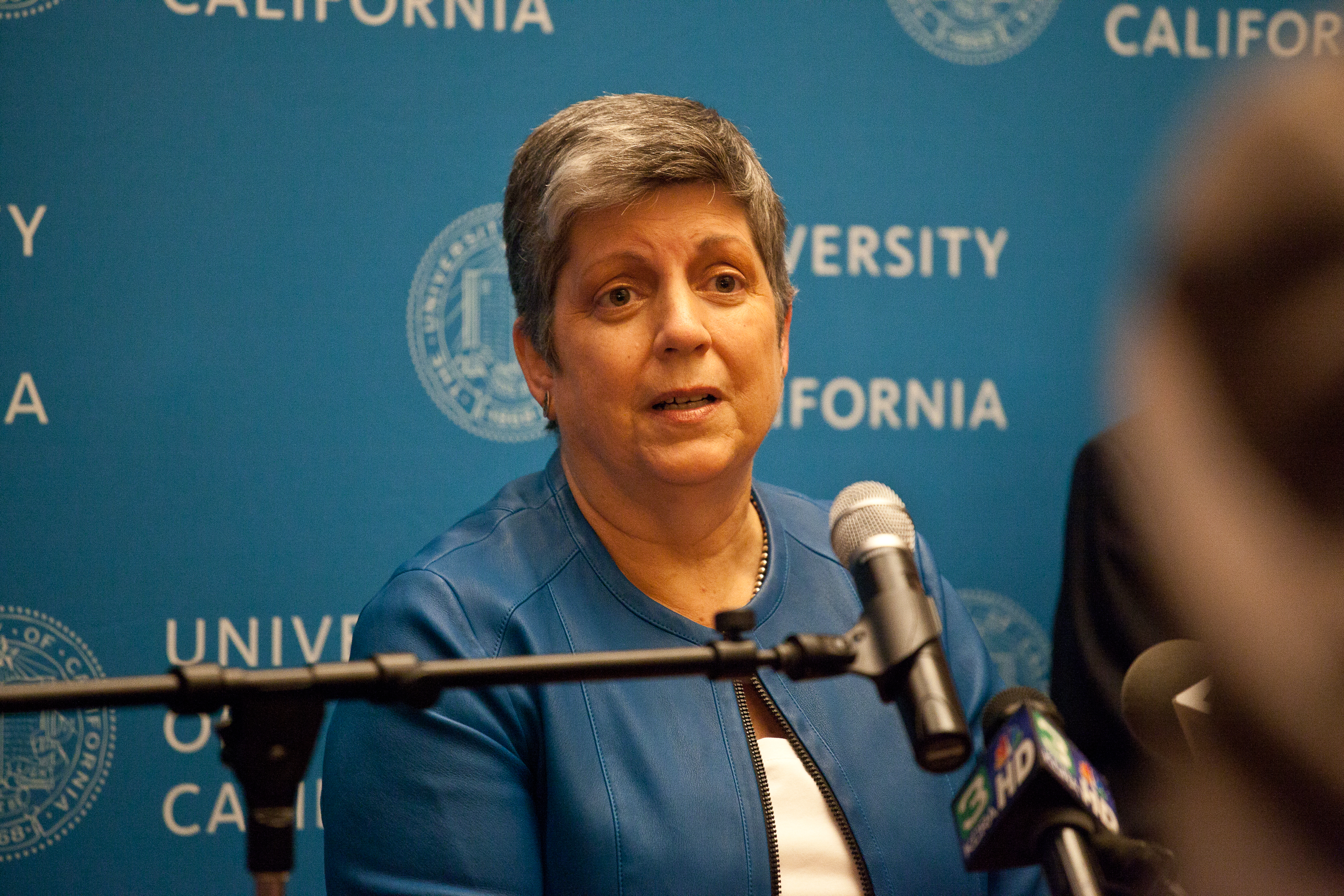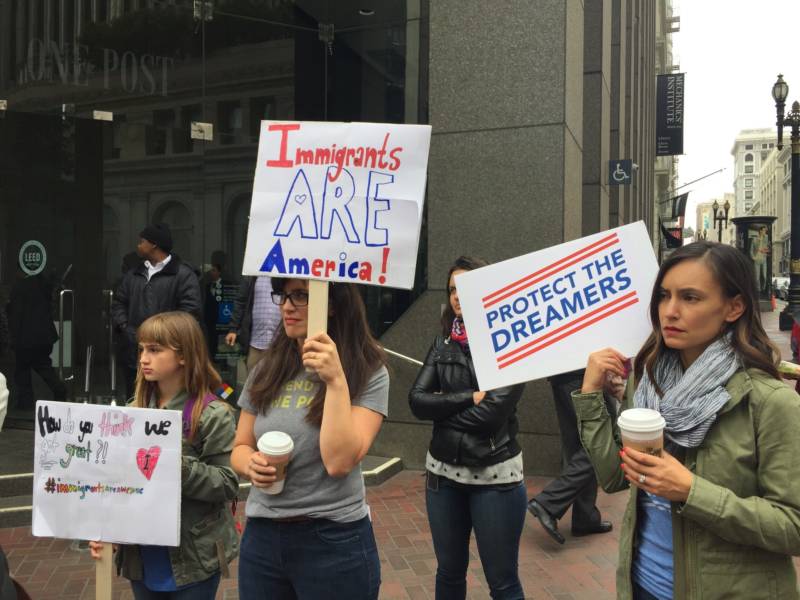A federal appeals court in California has blocked the Trump administration from immediately terminating an Obama-era program protecting from deportation young immigrants brought illegally to the U.S. as children.
A three-judge panel of the U.S. 9th Circuit Court of Appeals, based in San Francisco, ruled unanimously in favor of a lower court's preliminary injunction against the administration's attempt to phase out Deferred Action for Childhood Arrivals.
The program allows about 703,000 young immigrants to stay and work in the United States—201,000 of them live in California. In January, U.S. District Judge William Alsup granted a request to keep DACA operational while its future was being litigated.
The ruling is the latest legal setback for the Trump administration over DACA.

"What that means for our students and for DACA students around the country is they can continue to be enrolled and to reenroll," Janet Napolitano, President of the University of California, told KQED.
Napolitano helped create DACA in 2012 when she worked as former President Obama's Homeland Security Secretary.
Last year, she brought the lawsuit on behalf of UC students that has kept DACA alive thus far.
"I take it a bit personally when the next administration just eliminated the program, with seemingly little thought for the hardships they were causing," she said.
Earlier this week, the U.S. Department of Justice asked the Supreme Court to intervene intervene, even before the 9th Circuit issued its ruling. The administration argues the program is unlawful.
"The Department of Homeland Security acted within its lawful authority in deciding to wind down DACA in an orderly manner," said Steven Stafford, a spokesman for the Justice Department.
"While we are disappointed with today's (9th Circuit) ruling, we are pleased that the court has finally acted and that the Supreme Court now can consider our petition for review," he said.
History of Legal Challenges
Last year, President Trump announced his intention to end DACA to avoid a lawsuit by Texas and other states. But the president's action drew immediate legal challenges.
In February, a federal judge in New York also blocked the administration from ending DACA.
In April, a third federal judge, in Washington, D.C., also ruled against the administration.
"When President Trump announced the decision of to end the DACA program, we knew right away here in California that we needed to take legal action," said California Attorney General Xavier Becerra at a press conference. "We are home to more than one of every four dreamers in this country."

